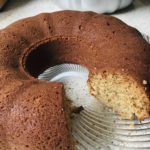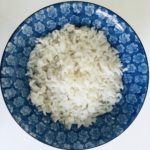Many people test negative for celiac disease, but feel better — I mean in a life-changing way — on a gluten-free diet. What does this mean? That it is all in their heads? (Some doctors have certainly made this claim!)
Research is being conducted on the possibility that some people have non-Celiac gluten sensitivity (NCGS). This means that they would test negative on all the strict-criteria celiac blood tests and biopsy, but still could have mild to severe health problems caused by eating gluten. Unfortunately, many people who are gluten-sensitive are being told that since they don’t have celiac disease, they do not need to follow a gluten-free diet. Some of these people will go on a gluten-free diet anyway (and are never followed or recorded for statistics), and some people will walk away from the notion that gluten could be making them ill. They, of course, are the ones who suffer.
Read more about non-Celiac gluten sensitivity:
Ask the Doc: Difference between celiac disease & gluten intolerance?
Celiac Disease Versus Gluten Sensitivity: New Role for Genetic Testing and Fecal Antibody Testing?
Challenging the Gluten Challenge







Steve Grabosky says
I am in the diagnostics business, a clinical laboratorian by trade. There are a couple of possibilities related to why you might feel better on a gluten-free diet even though you don’t have celiac disease.
One is that there is another entirely different disease mechanism from celiac. You can have a Type I Hypersensitivity to gliadin, a component of gluten. This is more like an “IgE” food allergy. The effects can range from small to large. It would be difficult to diagnose a small reaction. An allergist might do a food challenge but this might be difficult to perform because Ideally you would need to isolate the gliadin fraction of the gluten only.
Secondly, notice that virtually all breads, pastas, cookies, etc. are starchy and if it’s starch, there is likely lots of gluten. If you eliminate these items from your diet, you are likely reducing your carbohydrate load and simultaneously improving your insulin resistance. This alone will make you feel better. The key is vastly reduce the amount of starch-related carbohydrates.
Hope this helps.
alison says
Steve,
Thanks for your comments.
What do you think about IgG testing? (For the readers out there, I am talking about testing for IgG antibodies instead of IgE.) I know a lot of people are being diagnosed with gluten intolerance or delayed food reaction via ELISA testing using IgG antibodies.
I’m not sure I agree with your starch/carb theory. I know that people always feel better on low-carb diets, but I think it is because they are reducing their wheat/gluten intake. I and other gluten-free people I know still eat a lot of carbs – rice, breads and other foods made from non-gluten grains. I think a lot of people really are intolerant to gluten. Just what this means, whether it is an immune function or not, is not known yet.
Alison
Steve Grabosky says
Alison,
Good observations. It’s challenging.
For what it’s worth:
http://www.quackwatch.com
I don’t agree with everything in it – but it helps us keep our mind thinking.
Steve
Thomas Mercer says
Look for Dr. Wangen’s new book on Celiac and other forms of gluten intolerance, due to be published in early 2008. He spoke at the national GIG conference in Richmond VA in June 2007. His previous book “The Irritable Bowel Syndrome Solution” has some information on non-celiac gluten intolerance. The clinic he founded – the IBS Treatment Center treats patients with IBS and related disorders. IgG and IgE mediated allergies have been researched to a small degree and the indications are that they can cause IBS symptoms. There is an excellent collection of research on the Innate Health Foundation website at http://www.InnateHealthFoundation.org/5_c.htm.
Unfortunately there is some resistance in the medical community to new research that challenges old assumptions. But the studies are pretty detailed and show the biochemical basis for non-celiac forms of gluten intolerance.
Diana says
Thank you so much for your comment on my blog, Somebody Heal Me.
I think I might fall into this category because I have not been formally diagnosed with Celiac Disease. My doctor told me my insurance company would most likely pitch a fit about paying for the testing and that she didn’t think it was necessary. I don’t know if that is good advice or not, but I trust her, so I’m following her lead.
This is a great website. I’m adding you to my links and subscribing to your feed.
Rebecca says
I have been tested and was told I do not have celiac disease. I was treated for h-pylori and told I would be fine. But to my dismay I am still experiencing the same symptoms. Should I try a gluten-free diet?
alison says
Hi Rebecca,
You could try Enterolab (www.enterolab.com) to see if you are gluten sensitive. They test your stool for antibodies. Many people have found answers this way.
Otherwise, why not try a gluten-free diet? Yes, it’s hard at first, but if you feel better it will be worth it!
Dbruns says
To all the people that require a TEST to ligitimise their symptoms… Please listen to your body, if your own body is telling you that gluten is not good by giving you symptoms of gas and bloating etc, then stop eating it… simple! Why do you NEED to see it in a doctor’s report to stop eating it. Please note that doctors get a total of 3 HOURS of nutrition in their many years of medical school, so in my humble opinion, they are NOT the experts in food, they know drugs and most diseases, not pertaining to the gut. Also, there are always false negatives and some of these tests don’t even detect minor sensitivities. So listen to your own body and feed it better foods, wheat is not the only food and you won’t die if you don’t get it, infact you may live longer without it!!